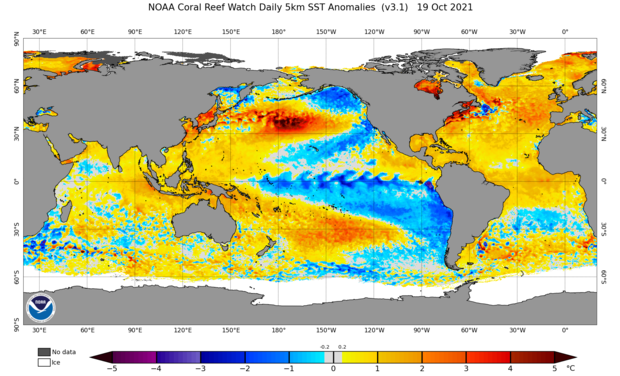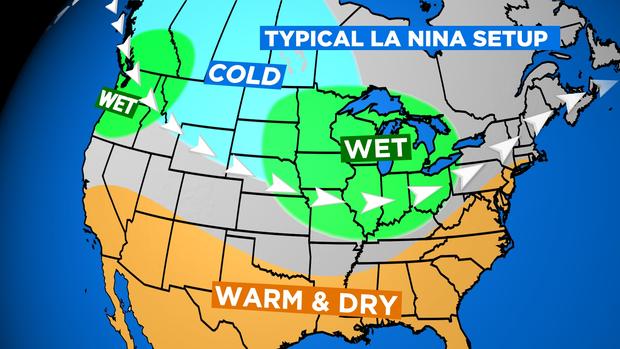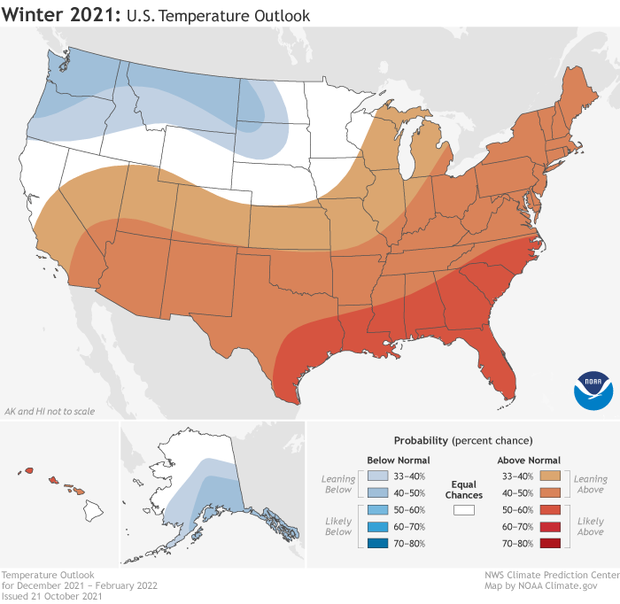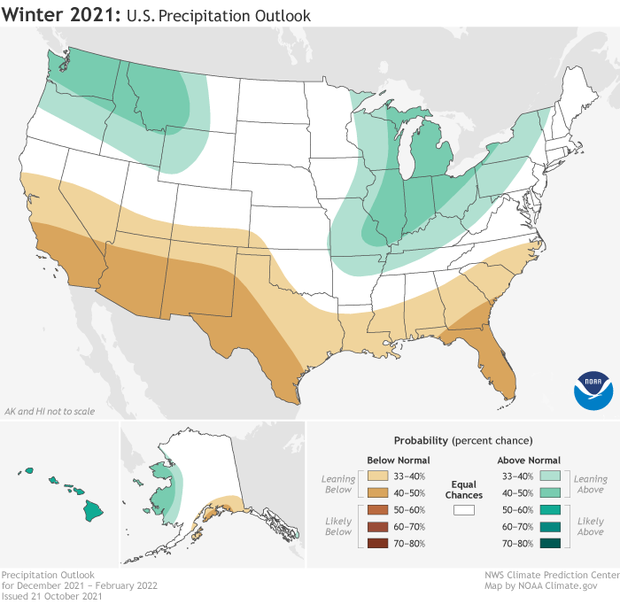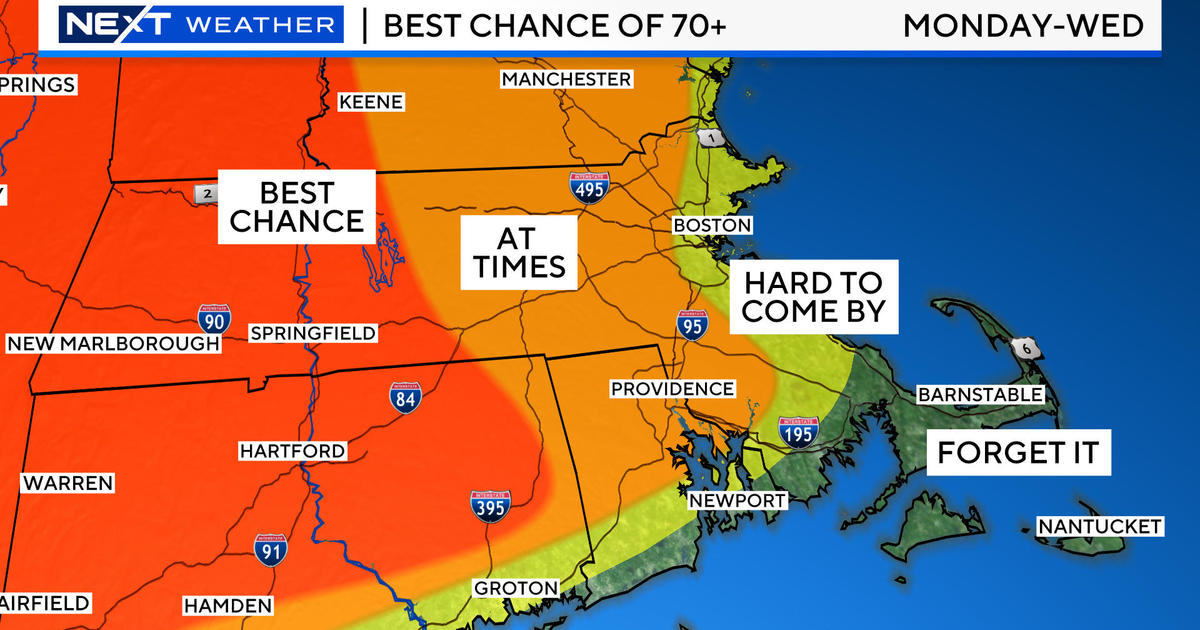National Weather Service Forecasts Milder Than Average Winter For New England
BOSTON (CBS) -- There aren't many headlines that get more clicks around New England than "winter forecast."
I get it.
Winter is, by far, the most interruptive and life-altering season in our area. And, we all have our different interests and perspectives. For skiers, it is all about the snow up north. For plow operators, a cold and snowy season can bring life-changing cash. But for many of us, the forecast of a mild winter can ease the stress of the changing seasons just a bit.
Before I get into the National Weather Service's (NOAA) winter forecast for 2021-2022, I have just a few thoughts of my own. Winters here in New England have become (dare I say) a bit easier to forecast lately. Granted, there are a TON of atmospheric variables to consider, but in the end, there are some things that are nearly a lock at this point.
First off, it is awfully hard to imagine a colder than average winter at this point. In order to forecast a three-month span (December through February) that averages out colder than normal, you would have to have some BIG evidence and MAJOR variables at play.
The last time we had an entire meteorological winter that averaged below normal was 2017-2018, and that was barely below average (32.5 vs 32.8). It has been six years since we had a winter that was significantly colder than average.
I think we all remember the winter of 2014-2015 with the record breaking snowfall. It is just so hard to get a below-average month these days. Boston has had just two in 2021 -- February and July -- and the rest are mainly well above average. The year 2021 in Boston is currently the warmest year to date ever recorded.
I could go on and on with the record-breaking warm stats, but I think you get the point. In order to forecast a colder than average winter for 2021-2022, we would have to see some MAJOR, GROUNDBREAKING evidence of a significant Global pattern shift.
At this point, that is hard to imagine. Perhaps, the biggest reason behind this is the oceans. The most common and significant trait that the last several years, and winters, have had in common is an overwhelmingly mild Atlantic and Pacific Ocean compared to averages. If you look at a map of ocean temperature anomalies, nearly the entire Atlantic and Pacific basins are yellow, orange, and red, with just a few "pools" of blue (signifying cooler than average areas).
The most significant area of cooler waters lies off the western South American coastline. This, we call a La Nina. Sound familiar? We had nearly the same setup last winter.
Given this, at this point, I would find it hard to forecast anything but a milder than average winter (similar to last year). That doesn't mean we won't get some cold stretches and Arctic outbreaks. That is inevitable.
This also doesn't mean we won't get some big snow events. A milder than average winter doesn't always equal less snow. Winter snowfall is much harder to forecast than winter temperatures. Snowfall is very fickle. A few coastal storms hitting or missing can mean the difference between above or below average snowfall seasons. Having said that, we have had three straight below average snowfall seasons in Boston, which is very rare.
So, in a sense, you could say we are "due". That is not a smart way to forecast though. These things tend to equal out over time. However, our global climate is much different (warmer) than it has ever been. So comparing snowfall amounts and temperatures to past decades can be dangerous and incorrect.
The official WBZ Winter Forecast will be out next month (I think you can tell which way we are leaning though). We will have much more details on the upcoming winter at that point.
Today, we highlight the NOAA winter forecast, which calls for milder than average temperatures in the southern and eastern portions of the country (including New England).
They have equal chances for above/below average precipitation in New England. They highlighted the Pacific Northwest and Upper Midwest as areas that are more likely to have above average precipitation.
This is in line with our early thoughts on winter here in New England and across the country.
In the coming weeks, we will be closely monitoring the evolution of the changing seasons. The late October and November weather can often give us valuable insight into the winter to come.
In short, we got you covered. Stay tuned for the complete WBZ winter forecast in November!
Follow Terry on Twitter @TerryWBZ
